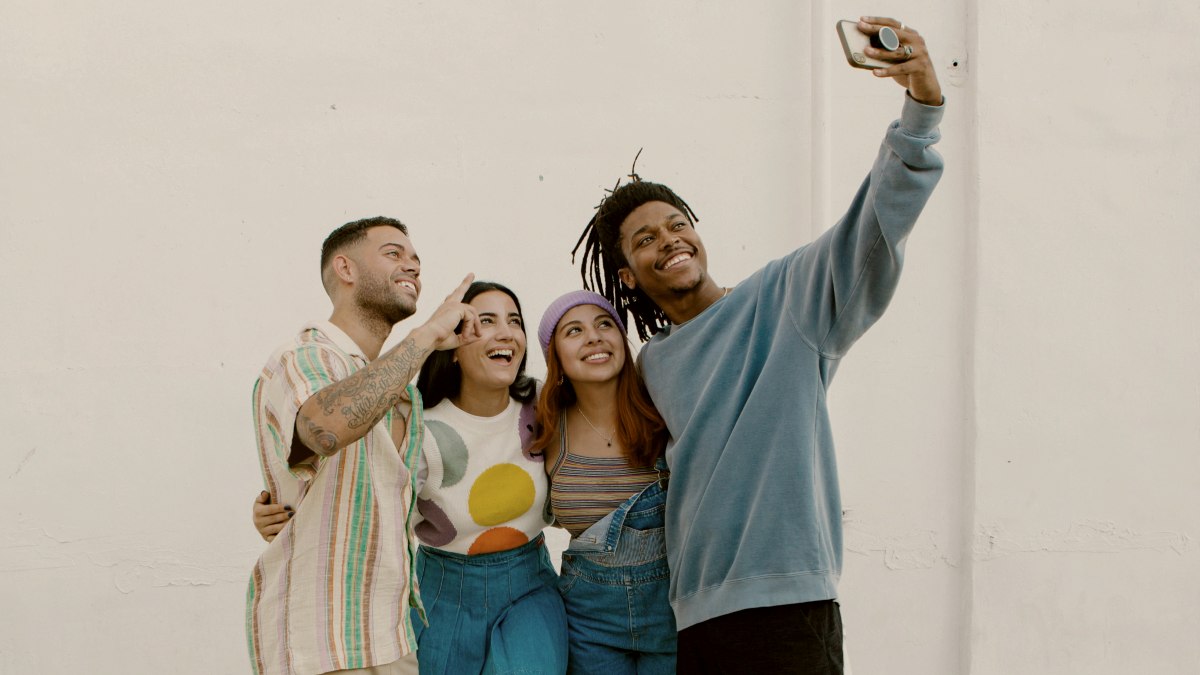
What Your Need To Take 'Selfies' Reveals About Your Personality
The act of taking a selfie is often less about appearance and more about self-expression and self-preservation.

By Mark Travers, Ph.D. | June 5, 2025
A selfie or a self-photograph, is used to capture and present one's appearance, experiences or emotions in a way that is instantly shareable. They can range from casual snapshots to more curated or edited images.
A 2023 survey by PhotoAiD found that 60% of Americans take selfies at least once a week. While selfies are often dismissed as a sign of vanity, recent research reveals that there's more to them than meets the eye.
Here are two unexpected reasons why people take selfies, according to research.
1. Fighting 'Death Anxiety'
A 2024 study published in Psychological Reports found that a higher frequency of selfie-taking and sharing is associated with "death anxiety," which refers to the deep-seated fear of one's mortality.
By capturing and sharing images of themselves, individuals may be attempting to create a sense of permanence in an impermanent world. The act of taking selfies can be a way to cope with the fear of death by leaving behind a visual record of one's existence.
In this way, selfies serve as a symbolic form of immortality, helping people manage their existential fears by preserving their identity in a digital format that outlasts their physical presence.
"People are motivated to decrease their death anxiety by preserving a fake feeling of immortality. The motivation to remain immortal is strong, expressed by many different attempts to 'leave something behind.' One known way to achieve this goal is by using photography," the researchers explain.
Researchers also found that those with narcissistic tendencies tend to experience higher levels of death anxiety, which in turn may lead them to taking more selfies.
Narcissistic individuals often place a heightened focus on their self-image and personal significance. When confronted with the reality of mortality, they may feel an amplified threat to their sense of importance and attempt to assert control over their legacy through these pictures.
2. Communicating One's Identity To The World
Selfies can be powerful tools to communicate one's identity, offering a way for individuals to express who they are, how they see themselves and how they wish to be perceived by others.
A 2017 study published in Frontiers in Psychology found that individuals who tend to highlight their strengths and achievements to create a positive impression or share personal feelings to create emotional connections with others feel more positive about taking selfies.
Interestingly, participants also believed that their own selfies were more authentic and self-ironic compared to others, possibly as a way to fulfill their self-presentation needs without feeling overly narcissistic.
Additionally, research shows that people often use selfies to maintain social contacts and exchange information, with those most active on social media reporting higher psychological well-being tied to their interactions with others.
For these individuals, selfies serve as a bridge between their personal identity and their social networks, allowing them to experience a sense of belonging and validation from others.
Moreover, selfies can play a crucial role in expressing and affirming group identities. A 2019 study published in the International Journal of Communication suggests that individuals use selfies to signal various aspects of their social identity, such as race, gender and sexual orientation.
"Race is a group marker and can be celebrated in a variety of ways: language, clothes, hair, music, tattoos. Participants reported that they take selfies to say something about who they are, connect with others, feel better about themselves, feel empowered and identify with others like themselves," the researchers explain.
"LGBTQ participants were also more likely to use activist and political events as selfie contexts and to engage in online activism. This, then, is something apart from the narcissism that is often associated with selfies. Instead, it appears that selfies can be used to make a personal and/or political statement," the researchers add.
So, selfies are not necessarily a sign of self-indulgence. Instead, they are a way for individuals to navigate and articulate their place in the world, reflecting their ongoing search for meaning, connection and personal expression.
Curious if you experience death anxiety? Take this science-backed test to find out: Death Anxiety Scale
A similar version of this article can also be found on Forbes.com, here.
